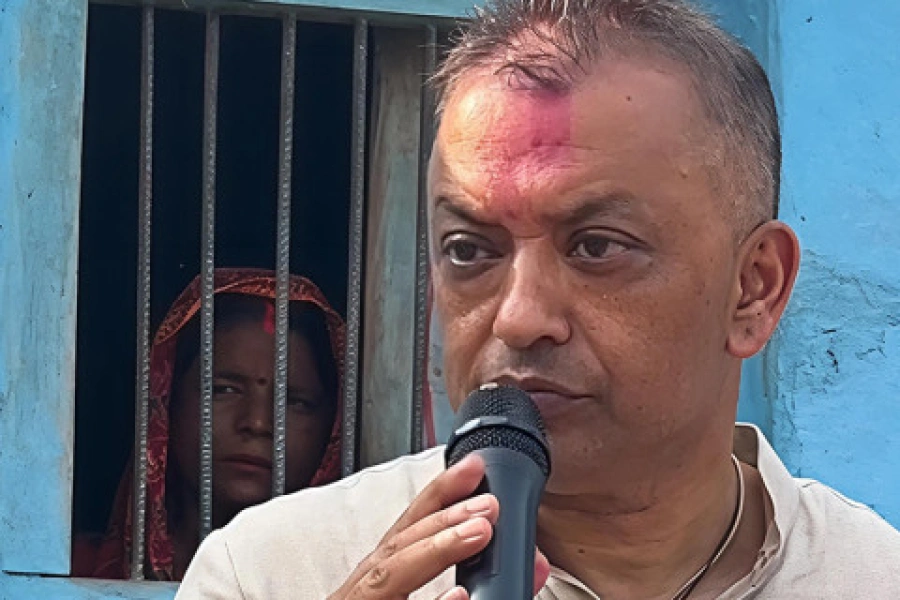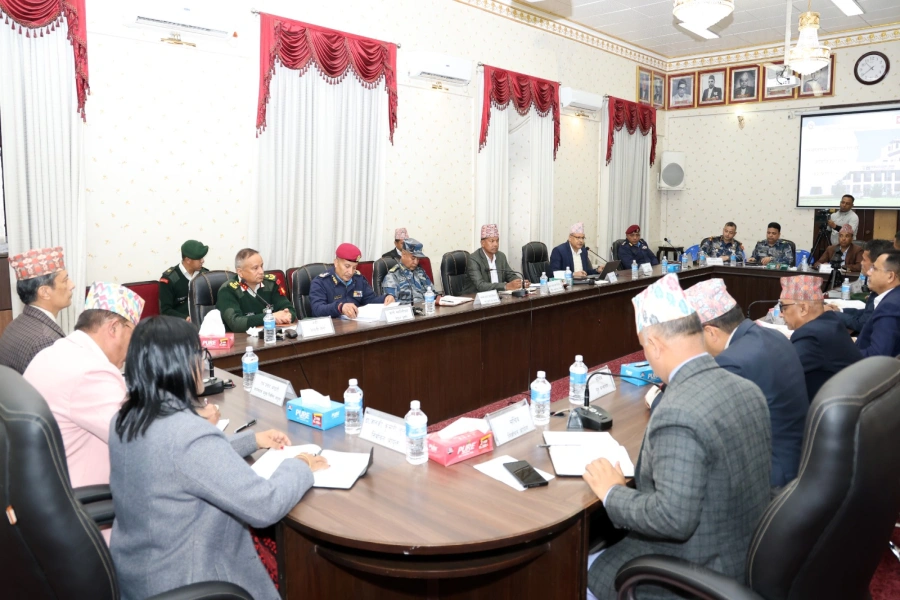KATHMANDU, Dec 20: With the historic elections to the federal parliament and provincial assemblies over, the nation has now entered into a new political course of constitution implementation per se.
This is the first election to be held in accordance with the constitution promulgated by the Constituent Assembly comprising the elected representatives of the people. All the three levels of elections as envisioned by the constitution have been successfully held. Before these twin elections, the local level elections were conducted in three phases.
The successful conclusion of all three levels of elections as mandated by the constitution has effectively ended the political transition except the works remaining to be carried out under the peace process by the Commission of Inquiry on Enforced Disappeared Persons (CIEDP) and the Truth and Reconciliation Commission (TRC).
Election results are almost out and the Election Commission is in the process of preparing the final official results. The left alliance is poised to form a majority government at the centre and in at least five of the seven provinces as per the number of seats it has clinched in the elections. The people have given their verdict as to which parties are to govern and which parties will be in the opposition benches through their votes. The roadmap of the governing parties and the opposition party are also clear in terms of their respective election manifestos. Election manifestos of both sides advocated for development, economic prosperity and good governance, and this appears to be the common roadmap of the country for the coming days.
President Paudel expresses concern over parliament deadlock

The elections were held for a total 275-member House of Representatives. The CPN (UML) won 80 seats, the CPN (Maoist Centre) 36 seats, the Nepali Congress 23 seats, the Rastriya Janata Party Nepal 11 seats, the Federal Socialist Forum Nepal 10 seats and the Naya Shakti Party Nepal, the Nepal Workers and Peasants Party, the National People's Front and the Rastriya Prajatantra Party one seat each out of the total 165 seats towards the first-past-the-post election system. An independent has won from one constituency.
The preliminary election results of the proportional representation system of the election to the House of Representatives show that UML will get 41 seats, Nepali Congress 40 seats, the Maoist Centre 17 seats, the Rastriya Janata Party Nepal six seats and the Federal Socialist Forum Nepal six seats.
As per the elections results under the first-past-the-post and the PR system, the UML will be the largest party in the House of Representatives with 121 seats, the Nepali Congress the second largest party with 63 seats, the Maoist Centre the third largest party with 53 seats, the Rastriya Janata Party Nepal fourth largest party with 17 seats and the Federal Socialist Forum Nepal the fifth largest party with 16 seats.
According to the constitution, 138 seats are needed for commanding a majority in the 275-member lower chamber of parliament. Since no single party has majority in the House of Representatives in terms of the number of seats they have won, at least two parties will have to form a coalition government.
However, there are also many challenges ahead.
The epochal elections are over. Normally, in a well functioning democracy, it is the practice that the process of handover of power starts with the conclusion of the elections. The people want a new government at the helm reflecting their choice after the elections are over. But a fresh dispute has erupted between the leftist alliance and the Nepali Congress over the modality of the election of members to the National Assembly, which has created another political deadlock. The parties have also dragged the Office of the President in this controversy.
The Nepali Congress-led government had, two months back, presented before the President an ordinance related to the election of the members to the National Assembly, the Upper House of the federal parliament. This ordinance has made provisions for adoption of the single transferable voting system for the election of the members to the National Assembly. The leftist alliance comprising the CPN (UML), which has emerged as the largest party in terms of the number of seats it has won in the elections and the CPN (Maoist Centre) which is in the third position in terms of the number of seats it has won, has protested this ordinance. The leftist alliance is in favour of adopting the block system of voting for the election of the members to the National Assembly.
Surprisingly enough, the Office of the President has not endorsed the ordinance for over two months saying it was 'studying' the ordinance. However, the President, in the separate consultations she held with the top leaders of the parties in the leftist alliance and the Nepali Congress president and Prime Minister in the last few days, has urged the parties to resolve the dispute over the ordinance through political compromise.
This dispute over the ordinance is likely to delay the formation of new government. Although the House of Representatives and State Assemblies election results have been declared, the National Assembly has not been formed as there is no law for the election of the members of the National Assembly as required by the constitution. The federal parliament will not have the full shape unless the National Assembly is formed.
This issue has brought the national politics at a logger head.
This is certainly not the time for the political parties to take the country hostage by quarrelling over the issue of whether to adopt the single transferable voting system or the majoritarian voting system for the formation of the National Assembly. The parties should come to an amicable political compromise and sort out the issue to pave the way for the formation of the National Assembly and then subsequently the new government. If the major parties fail to reach an understanding while considering only their partisan interests and keep the political confusion continuing, then the people might once again get disenchanted with the political parties and their leaders. This will harm both the leftist alliance and the Nepali Congress.
RSS






























-1200x560-1771928761.webp)









